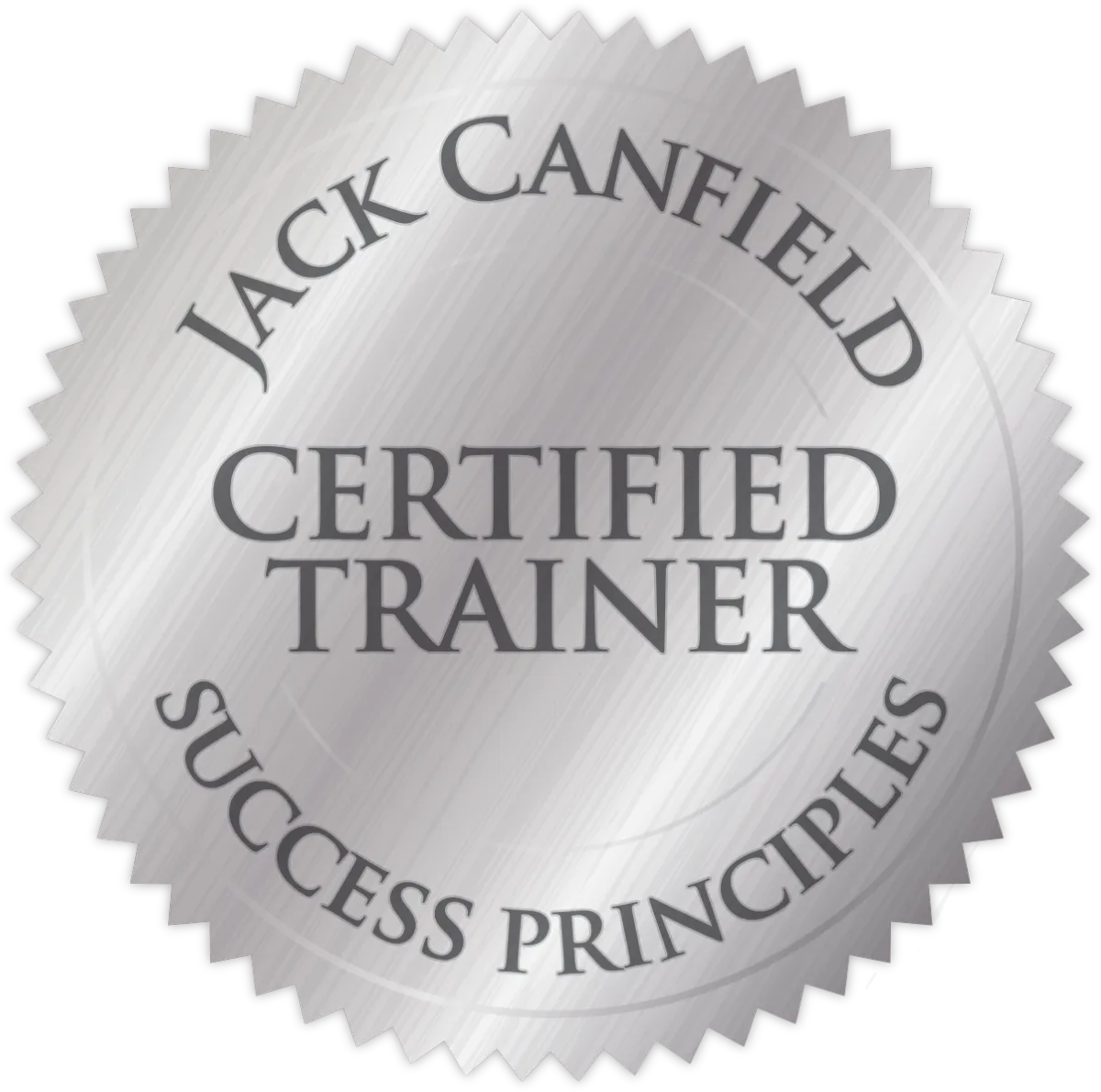Watch The Journey
BLOG
Innovative CRM Tools You Need to Know About in 2024
Thursday, June 20, 2024
Jeremy Coates
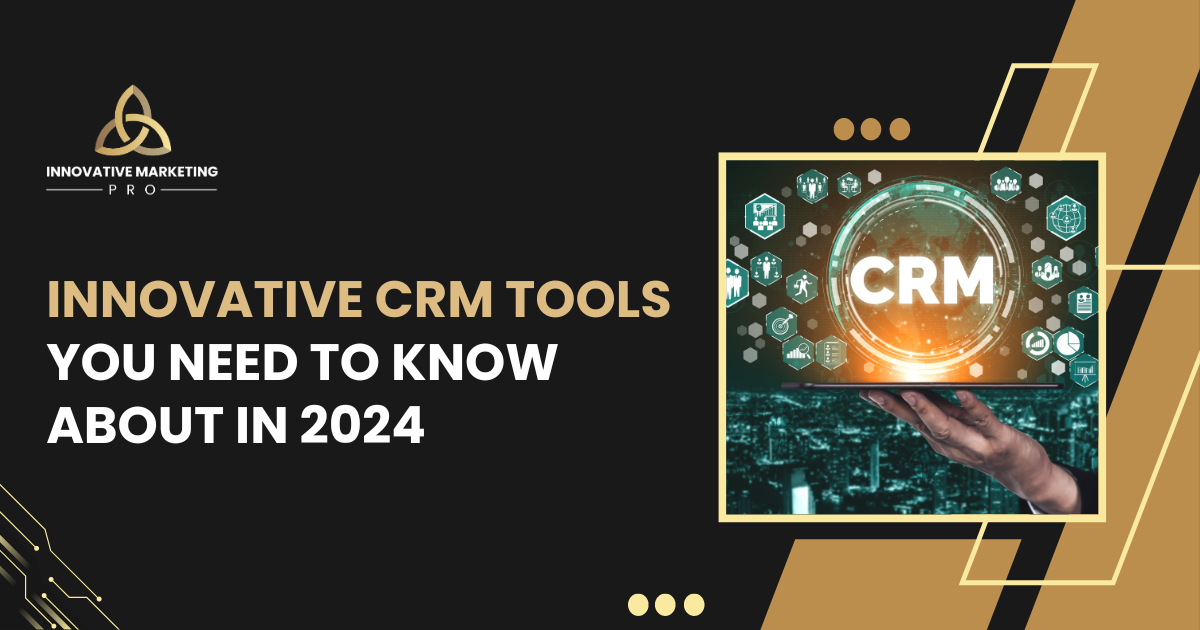
Revolutionizing Customer Relationship Management
Why CRM is Crucial for Modern Business
In today's digital age, Customer Relationship Management (CRM) systems have become indispensable tools for businesses aiming to thrive in a highly competitive market. CRM systems are crucial because they centralize customer data, streamline processes, and enhance the overall customer experience. Here’s why CRM is a cornerstone of modern business:
Centralized Data Management: Imagine having all your customer data—contact details, purchase history, interaction logs, and preferences—in one place. CRM systems do just that, providing a single source of truth. This centralization not only improves data accuracy but also ensures that everyone in your organization is on the same page, leading to more cohesive and efficient operations.
Enhanced Customer Insights: With detailed analytics and reporting tools, CRMs offer deep insights into customer behavior and preferences. This data allows businesses to tailor their marketing and sales strategies to meet the specific needs of their customers. For instance, understanding what products a customer frequently buys or which services they often inquire about can help in creating targeted marketing campaigns that resonate more with them.
Improved Efficiency and Productivity: CRMs automate many mundane and repetitive tasks, such as sending follow-up emails, scheduling appointments, and updating customer records. This automation not only saves time but also reduces the risk of human error. Employees can then focus on more strategic tasks like engaging with customers and closing deals, which can significantly boost productivity and efficiency.
Better Customer Service: In the age of instant gratification, customers expect quick and effective responses to their inquiries and issues. CRM systems empower customer service teams with comprehensive customer profiles and interaction histories, enabling them to resolve issues faster and more effectively. This level of service can greatly enhance customer satisfaction and loyalty, leading to repeat business and positive word-of-mouth.
The Rapid Evolution of CRM Tools
The CRM landscape has undergone a remarkable transformation over the past few years, driven by technological advancements and evolving business needs. Here’s a closer look at the rapid evolution of CRM tools:
Integration of AI and Machine Learning: Modern CRMs are leveraging AI to provide predictive analytics and personalized recommendations. For example, AI can analyze a customer's past purchases and browsing behavior to suggest products they might be interested in, increasing the likelihood of a sale. Machine learning algorithms also help in identifying patterns and trends in customer data, enabling businesses to make more informed decisions.
Omni-Channel Capabilities: Today’s customers interact with businesses across multiple channels—social media, email, chat, phone, and in-person. Modern CRM systems support omni-channel communication, ensuring that all customer interactions are tracked and managed seamlessly across all channels. This holistic view of customer interactions helps businesses provide a consistent and personalized experience, regardless of the platform.
Mobile Accessibility: With the rise of remote work and mobile-first strategies, CRM tools are now optimized for mobile devices. Sales representatives can access customer data, update records, and manage tasks on the go, ensuring they have the information they need at their fingertips. This mobile accessibility enhances flexibility and ensures that business operations are not confined to the office.
Enhanced User Experience: The focus on user-friendly interfaces and customizable dashboards has made CRM tools more accessible and easier to use. Businesses can tailor the CRM interface to match their specific needs and workflows, making it easier for employees to adopt and utilize the system effectively. Improved UX design helps in maximizing the efficiency and effectiveness of CRM systems.
Discover the Game-Changing CRM Tools of 2024
As we look ahead to 2024, several innovative CRM tools are set to revolutionize how businesses manage their customer relationships. Here are some of the most game-changing CRMs you need to know about:
AI-Driven Analytics: Your Secret Weapon
Features: Predictive analytics, customer behavior forecasting, personalized recommendations.
Benefits: Enhanced decision-making, targeted marketing strategies, improved customer retention. AI-driven analytics can help businesses anticipate customer needs and tailor their offerings accordingly, leading to higher satisfaction and loyalty.
Automation & Workflow Management: Boosting Efficiency
Features: Automated follow-ups, task reminders, workflow customization.
Benefits: Increased efficiency, reduced manual workload, streamlined operations. Automation tools ensure that no customer interaction falls through the cracks, improving overall productivity.
Advanced Customer Segmentation: Target with Precision
Features: Detailed customer profiling, dynamic segmentation based on behavior and preferences.
Benefits: More effective marketing campaigns, personalized customer experiences, higher conversion rates. Advanced segmentation allows businesses to create highly targeted campaigns that resonate with specific customer groups.
Integrated Communication Platforms: Unified Engagement
Features: Unified communication channels (email, social media, chat), real-time customer support.
Benefits: Improved customer engagement, faster response times, cohesive communication strategy. Integrated platforms ensure that all customer interactions are consistent and efficient, enhancing the overall customer experience.
Mobile CRM Solutions: Flexibility on the Go
Features: Mobile access to CRM data, on-the-go task management, real-time updates.
Benefits: Enhanced flexibility, increased productivity, better field service management. Mobile CRM solutions allow employees to stay connected and productive, no matter where they are.
These innovative CRM tools are designed to meet the evolving needs of businesses in 2024, providing advanced functionalities that drive growth, enhance efficiency, and improve customer satisfaction. By staying updated with the latest CRM advancements, businesses can ensure they remain competitive and continue to deliver exceptional customer experiences.
From Basic to Brilliant: The Evolution of CRM Technology

A Brief History: From Contact Management to Comprehensive CRM
The journey of Customer Relationship Management (CRM) technology began with simple contact management systems in the 1980s and 1990s. Initially, these systems were basic databases designed to store customer information, such as names, addresses, and phone numbers. Businesses used these tools to keep track of customer interactions and manage contact details. However, as businesses grew and customer interactions became more complex, the need for more sophisticated systems became apparent.
By the late 1990s and early 2000s, CRM systems evolved into more comprehensive solutions. These early CRMs integrated sales, marketing, and customer service functions, providing businesses with a more holistic view of their customer relationships. This integration allowed companies to track the entire customer journey from initial contact to post-sale support, improving customer service and enhancing sales processes.
Technological Advancements Shaping CRM in 2024
As we look to 2024, technological advancements continue to reshape the CRM landscape, making these systems more powerful and versatile than ever before. Several key technologies are driving this evolution:
Artificial Intelligence (AI) and Machine Learning: AI and machine learning have revolutionized CRM systems by enabling predictive analytics and automation. AI algorithms analyze vast amounts of data to identify patterns and predict customer behavior. This capability allows businesses to anticipate customer needs, personalize interactions, and make data-driven decisions with greater accuracy. Machine learning continuously improves these predictions as more data becomes available, enhancing the system's effectiveness over time.
Omni-Channel Integration: Modern CRMs support omni-channel communication, ensuring that customer interactions are consistent and seamless across all platforms. Whether a customer contacts a business via social media, email, phone, or in-person, CRM systems integrate these interactions into a unified database. This holistic approach ensures that businesses can provide a consistent and personalized experience, regardless of the communication channel.
Cloud-Based Solutions: The shift to cloud-based CRM solutions has made these systems more accessible and scalable. Cloud CRMs allow businesses to store data securely online, access it from anywhere, and scale their operations without the need for significant IT infrastructure investments. This flexibility is particularly beneficial for small and medium-sized businesses looking to leverage advanced CRM capabilities without high upfront costs.
Mobile Accessibility: With the rise of mobile devices, CRM systems are now optimized for mobile use. Mobile CRMs enable sales representatives and customer service agents to access customer data, update records, and manage tasks on the go. This mobility ensures that employees can stay productive and responsive, even when they are away from the office.
Enhanced User Experience (UX): Modern CRM systems prioritize user experience, offering intuitive interfaces and customizable dashboards. This focus on UX design makes CRM systems easier to use, increasing adoption rates and maximizing the efficiency of these tools. Users can tailor their CRM interfaces to suit their specific needs, ensuring that they can quickly access the information and tools they require.
Transforming Customer Management and Business Operations
The advancements in CRM technology have transformed how businesses manage customer relationships and operate their day-to-day activities. Here’s how:
Streamlined Operations: By automating routine tasks such as data entry, follow-ups, and scheduling, CRM systems free up valuable time for employees to focus on high-impact activities. This automation reduces the risk of human error and ensures that critical tasks are completed promptly, enhancing overall operational efficiency.
Enhanced Customer Experience: With comprehensive customer profiles and interaction histories, businesses can deliver personalized and consistent service. CRM systems enable customer service teams to resolve issues quickly and effectively, improving customer satisfaction and fostering loyalty. Personalized marketing campaigns, based on detailed customer insights, resonate more with customers, increasing engagement and conversion rates.
Data-Driven Decision Making: CRM systems provide businesses with access to vast amounts of customer data, which can be analyzed to uncover valuable insights. These insights inform strategic decisions, helping businesses optimize their marketing efforts, improve sales strategies, and develop better products and services. Data-driven decision-making ensures that businesses can respond proactively to market trends and customer needs, maintaining a competitive edge.
Scalability and Flexibility: Cloud-based and mobile CRM solutions offer unparalleled scalability and flexibility. As businesses grow, their CRM systems can easily scale to accommodate more users, additional data, and increased complexity. This scalability ensures that CRM systems remain valuable assets as businesses evolve and expand.
In conclusion, the evolution of CRM technology from basic contact management systems to comprehensive, AI-driven solutions has revolutionized customer management and business operations. By leveraging the latest technological advancements, businesses can streamline their operations, enhance customer experiences, and make data-driven decisions that drive growth and success in 2024 and beyond.
Unveiling the Top Innovative CRM Tools of 2024
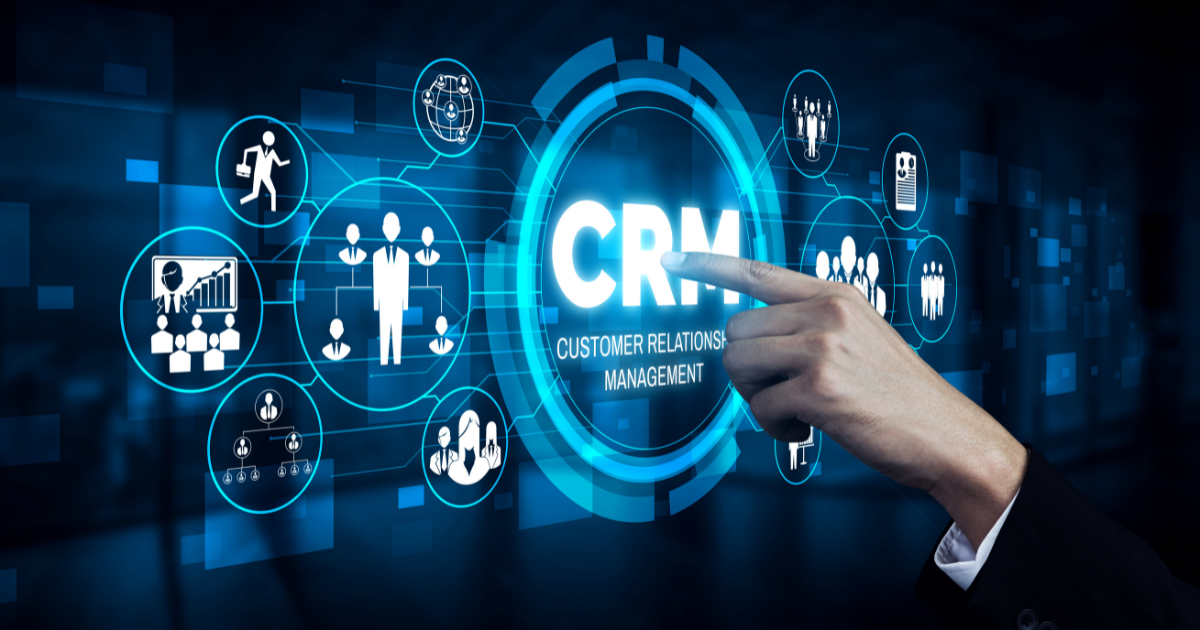
As businesses navigate the ever-evolving landscape of customer relationship management, staying ahead with the latest CRM tools is crucial. The year 2024 brings a suite of innovative CRM tools designed to streamline operations, enhance customer engagement, and drive business growth. Let’s explore these cutting-edge tools that are transforming the way businesses manage customer relationships.
AI-Driven Analytics: Your Secret Weapon
In 2024, AI-driven analytics are at the forefront of CRM innovations, offering unparalleled capabilities for understanding and predicting customer behavior.
Predictive Analytics and Customer Behavior Forecasting: AI algorithms analyze vast amounts of data to identify patterns and trends, providing businesses with predictive insights. This capability allows companies to anticipate customer needs and behaviors, enabling proactive engagement strategies. For example, by predicting which products a customer is likely to buy next, businesses can tailor their marketing efforts to maximize sales opportunities.
Personalized Recommendations for Enhanced Decision-Making: AI-driven CRM systems can generate personalized recommendations for customers based on their past interactions and preferences. These recommendations help businesses offer relevant products and services, increasing the likelihood of conversions and enhancing customer satisfaction. Additionally, AI-powered insights assist managers in making informed decisions regarding inventory, marketing campaigns, and sales strategies.
Automation & Workflow Management: Boosting Efficiency
Automation is a key feature of modern CRM systems, aimed at enhancing efficiency and productivity across business operations.
Automated Follow-Ups and Task Reminders: CRM tools can automate follow-up emails, appointment reminders, and other routine tasks, ensuring that no customer interaction is missed. This automation helps maintain consistent communication with customers, improving their overall experience and increasing the chances of repeat business.
Customizable Workflows for Streamlined Operations: CRM systems allow businesses to create and customize workflows that align with their specific processes. By automating tasks such as lead nurturing, sales pipeline management, and customer service ticketing, businesses can streamline their operations and reduce the manual workload on their staff. This customization ensures that each department operates efficiently, contributing to overall business productivity.
Advanced Customer Segmentation: Target with Precision
Effective marketing and customer engagement rely heavily on understanding and segmenting your customer base.
Detailed Customer Profiling and Dynamic Segmentation: Advanced CRM tools provide detailed customer profiles, capturing demographic data, purchase history, and behavioral patterns. This information allows businesses to create dynamic segments that can be targeted with tailored marketing messages. For instance, a retail business can segment customers based on their purchasing frequency and send personalized offers to high-value segments.
Crafting Effective Marketing Campaigns and Personalized Experiences: With detailed segmentation, businesses can craft highly effective marketing campaigns that resonate with specific customer groups. Personalized experiences, driven by CRM insights, lead to higher engagement rates and better customer retention. By understanding the unique needs and preferences of each segment, businesses can deliver content and offers that truly resonate.
Integrated Communication Platforms: Unified Engagement
In today’s multi-channel world, integrating all communication platforms into a unified system is essential for cohesive customer engagement.
Real-Time Customer Support and Unified Communication Channels: Modern CRM tools integrate various communication channels such as email, social media, live chat, and phone, into a single platform. This integration ensures that all customer interactions are logged and accessible in real-time, providing a seamless support experience. Customers receive timely and consistent responses, enhancing their satisfaction and loyalty.
Faster Response Times and Cohesive Communication Strategies: With a unified communication platform, businesses can respond to customer inquiries faster and more efficiently. This cohesiveness eliminates the risk of fragmented communication and ensures that all team members are informed about ongoing customer issues and interactions. As a result, businesses can develop and execute cohesive communication strategies that build stronger relationships with their customers.
Mobile CRM Solutions: Flexibility on the Go
The rise of mobile technology has made mobile CRM solutions a necessity for modern businesses, offering flexibility and increased productivity.
Mobile Access to CRM Data and On-the-Go Task Management: Mobile CRM tools provide sales representatives and customer service agents with access to customer data and CRM functionalities from their mobile devices. This accessibility allows employees to manage tasks, update records, and respond to customer inquiries while on the move. Mobile access ensures that critical information is always at hand, improving decision-making and responsiveness.
Enhancing Productivity and Field Service Management: For businesses with field service operations, mobile CRM solutions are invaluable. Technicians and field agents can access job details, customer histories, and inventory information on-site, improving service delivery and customer satisfaction. Mobile CRM tools also enable real-time updates and communication between field agents and the main office, enhancing coordination and efficiency.
By embracing these innovative CRM tools in 2024, businesses can revolutionize their customer relationship management strategies, driving efficiency, enhancing customer experiences, and achieving sustainable growth. Stay ahead of the curve by integrating these cutting-edge solutions into your CRM strategy.
The Transformative Benefits of Adopting Innovative CRM Tools
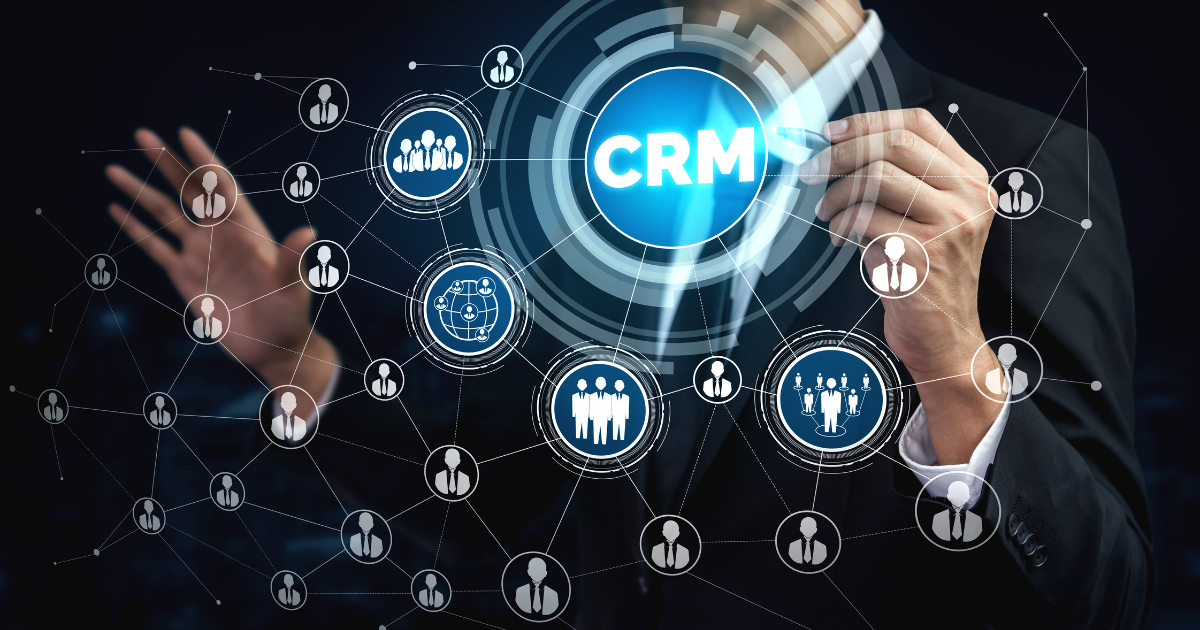
In the rapidly evolving business landscape, adopting innovative CRM tools is no longer optional—it's essential for driving growth, enhancing profitability, and maintaining a competitive edge. Here's how cutting-edge CRM solutions are transforming businesses across various industries.
Driving Business Growth and Profitability with Cutting-Edge CRM
Innovative CRM tools are pivotal in driving business growth and enhancing profitability. By integrating advanced features such as AI-driven analytics, automation, and real-time customer insights, modern CRM systems provide businesses with the tools they need to operate more efficiently and effectively. Here’s how these features contribute to growth and profitability:
Enhanced Decision-Making: AI-driven analytics offer deep insights into customer behavior, preferences, and trends. This information enables businesses to make informed decisions about product offerings, marketing strategies, and customer engagement tactics. By understanding what drives customer behavior, businesses can tailor their strategies to meet market demands more accurately, leading to increased sales and revenue.
Operational Efficiency: Automation features in CRM systems streamline routine tasks such as data entry, follow-ups, and reporting. This efficiency not only reduces the workload on employees but also minimizes the risk of human error. As a result, businesses can operate more smoothly, focusing their resources on strategic initiatives that drive growth.
Targeted Marketing: Advanced customer segmentation allows businesses to create highly targeted marketing campaigns. By delivering personalized messages to specific customer segments, businesses can improve their marketing ROI and drive higher conversion rates. Targeted marketing ensures that resources are used efficiently, maximizing the impact of marketing efforts on profitability.
Success Stories: Businesses Thriving with New CRM Tools
The impact of innovative CRM tools can be seen in numerous success stories across different industries. Here are a few examples of businesses that have thrived by adopting cutting-edge CRM solutions:
Retail Industry: A major retail chain implemented an AI-driven CRM system to analyze customer purchase patterns and preferences. By leveraging predictive analytics, the retailer was able to optimize its inventory management, ensuring that popular products were always in stock. This led to increased sales and reduced inventory costs. Additionally, personalized marketing campaigns boosted customer engagement and loyalty, resulting in a significant uptick in repeat purchases.
Healthcare Sector: A healthcare provider adopted a mobile CRM solution to enhance patient management and communication. By providing doctors and nurses with real-time access to patient records and histories, the CRM system improved the accuracy and efficiency of patient care. Automated appointment reminders and follow-ups reduced no-show rates, while personalized patient communication enhanced overall satisfaction and loyalty.
Financial Services: A financial advisory firm integrated a comprehensive CRM platform to manage client interactions and investment portfolios. The CRM system's automation features streamlined administrative tasks, allowing advisors to focus more on client relationships and strategic planning. The firm also used data analytics to offer tailored investment advice, which improved client satisfaction and retention, ultimately driving growth in assets under management.
Elevating Customer Satisfaction and Loyalty
One of the most significant benefits of adopting innovative CRM tools is the ability to elevate customer satisfaction and loyalty. Here's how modern CRM systems contribute to these critical business objectives:
Personalized Customer Experiences: CRM tools enable businesses to gather and analyze detailed customer data, allowing for highly personalized interactions. Personalized experiences make customers feel valued and understood, which enhances their satisfaction and fosters loyalty. For example, a CRM system can track a customer's preferences and purchase history, allowing businesses to offer tailored recommendations and exclusive deals.
Improved Customer Service: With comprehensive customer profiles and real-time access to interaction histories, customer service teams can resolve issues more quickly and effectively. This prompt and efficient service reduces customer frustration and builds trust. Automated support features, such as chatbots and AI-driven help desks, further enhance the customer service experience by providing instant assistance.
Consistent Engagement: CRM systems facilitate consistent and proactive engagement with customers through automated follow-ups, reminders, and personalized communication. Regular and meaningful interactions keep customers engaged and connected to the brand, increasing the likelihood of repeat business and positive word-of-mouth referrals.
Feedback and Continuous Improvement: CRM tools often include features for collecting and analyzing customer feedback. By understanding customer satisfaction levels and areas for improvement, businesses can continuously refine their products and services to better meet customer needs. This commitment to continuous improvement demonstrates to customers that their opinions are valued, further strengthening loyalty.
Future Trends in CRM Technology: Stay Ahead of the Curve

As the digital landscape continues to evolve, so does the realm of Customer Relationship Management (CRM). Staying ahead of the curve means embracing emerging technologies and preparing for the future of CRM tools. Here’s a look at the trends and innovations that will shape CRM technology in the coming years.
Emerging Technologies Impacting CRM: VR/AR, IoT, and Beyond
The future of CRM technology is being shaped by several groundbreaking technologies that promise to redefine customer interactions and business operations:
Virtual Reality (VR) and Augmented Reality (AR): VR and AR are set to revolutionize the way businesses engage with customers. Imagine virtual showrooms where customers can explore products in a 3D environment or AR-enhanced customer support that provides visual guides and real-time assistance. These immersive experiences can significantly enhance customer engagement and satisfaction, providing a unique edge in competitive markets.
Internet of Things (IoT): IoT technology allows businesses to collect data from connected devices, providing real-time insights into customer behavior and preferences. For instance, smart home devices can offer data on how customers use products, enabling businesses to provide personalized recommendations and proactive support. Integrating IoT data with CRM systems can lead to more informed decision-making and a deeper understanding of customer needs.
Artificial Intelligence (AI) and Machine Learning (ML): AI and ML continue to advance, offering even more sophisticated analytics, automation, and personalization capabilities. These technologies can predict customer behavior with greater accuracy, automate complex processes, and deliver highly personalized experiences. AI-driven chatbots and virtual assistants will become even more adept at handling customer inquiries, providing a seamless support experience.
Preparing for the Future of CRM Tools
As CRM technology evolves, businesses must prepare to integrate these advancements into their operations. Here’s how to stay ready for the future of CRM:
Invest in Scalable CRM Solutions: Choose CRM systems that are flexible and scalable, allowing for easy integration of new technologies as they become available. A modular CRM platform can adapt to changing business needs and technological advancements without requiring a complete overhaul.
Stay Informed and Up-to-Date: Keep abreast of the latest developments in CRM technology and industry trends. Regularly attending webinars, industry conferences, and engaging with thought leaders can provide valuable insights into emerging technologies and best practices.
Train Your Team: Ensure that your team is well-versed in the latest CRM tools and technologies. Ongoing training and professional development will help your staff leverage CRM capabilities effectively, maximizing the benefits of new features and functionalities.
Experiment and Innovate: Don’t be afraid to experiment with new technologies and CRM features. Pilot programs and beta testing can provide insights into how new tools can be integrated into your existing processes and what adjustments may be necessary for optimal performance.
Adapting to Evolving Customer Expectations with Flexible CRM Solutions
Customer expectations are continually evolving, driven by advancements in technology and changing market dynamics. Flexible CRM solutions are essential for meeting these expectations and maintaining customer satisfaction. Here’s how businesses can adapt:
Personalization at Scale: Customers expect personalized experiences that cater to their unique needs and preferences. CRM systems must be capable of delivering personalization at scale, leveraging AI and ML to analyze data and provide tailored recommendations, offers, and communication.
Proactive Customer Engagement: Modern customers prefer proactive engagement over reactive responses. CRM systems equipped with predictive analytics can anticipate customer needs and initiate engagement before customers reach out. This proactive approach can significantly enhance the customer experience and build stronger relationships.
Omni-Channel Consistency: Customers interact with businesses across multiple channels and expect a consistent experience regardless of the platform. CRM systems must integrate all communication channels to provide a unified view of customer interactions, ensuring seamless and cohesive engagement.
Real-Time Insights and Responsiveness: In an age where instant gratification is the norm, real-time insights and responsiveness are critical. CRM systems should provide real-time data and analytics, enabling businesses to respond swiftly to customer inquiries, issues, and opportunities.
Enhanced Security and Privacy: As data privacy concerns grow, businesses must ensure that their CRM systems comply with stringent security standards and regulations. Protecting customer data is paramount to maintaining trust and loyalty. CRM solutions should offer robust security features such as encryption, access controls, and compliance management.
Take Your CRM Strategy to the Next Level with Innovative Marketing Pro (IMP)
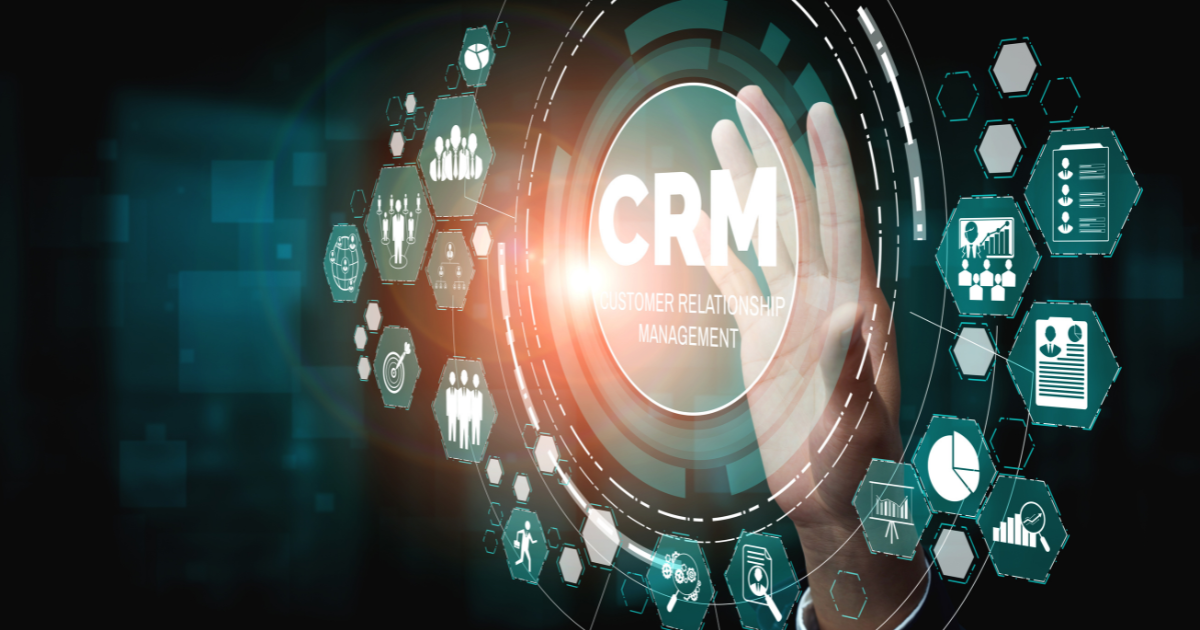
In the ever-evolving landscape of customer relationship management, staying updated with the latest CRM tools is crucial for maintaining a competitive edge. The right CRM solution can transform your business operations, enhance customer experiences, and drive significant growth. Here’s how you can take your CRM strategy to the next level, and why Innovative Marketing Pro (IMP) should be a top consideration.
Recap: The Importance of Staying Updated with the Latest CRM Tools
As technology advances, so do customer expectations. Staying updated with the latest CRM tools ensures that your business can meet these evolving demands. Modern CRM systems like IMP offer features that go beyond traditional contact management, providing advanced analytics, automation, and integration capabilities that streamline operations and enhance customer interactions. Here’s why it’s essential to stay current:
Enhanced Customer Insights: Modern CRM tools offer deeper insights into customer behavior, preferences, and trends. By leveraging these insights, businesses can tailor their strategies to better meet customer needs, leading to increased satisfaction and loyalty.
Increased Efficiency: Automation features reduce the time spent on routine tasks, allowing your team to focus on more strategic activities. This efficiency not only boosts productivity but also reduces the risk of errors.
Competitive Advantage: Staying updated with the latest CRM technologies ensures that your business remains at the forefront of innovation. This competitive edge can be crucial in attracting and retaining customers in a crowded market.
Invest in Innovation: Explore and Implement Advanced CRM Solutions
To truly elevate your CRM strategy, it’s crucial to invest in innovative solutions that offer advanced features and capabilities. Innovative Marketing Pro (IMP) is an excellent example of a state-of-the-art CRM solution that can revolutionize your customer relationship management. Here’s how IMP can make a difference:
AI-Driven Analytics: IMP leverages AI to provide predictive analytics and customer behavior forecasting, enabling you to make data-driven decisions that enhance customer engagement and drive sales.
Comprehensive Automation: With IMP, you can automate follow-ups, task reminders, and workflow management, ensuring that no customer interaction falls through the cracks. This automation boosts efficiency and ensures consistent, high-quality service.
Integrated Communication Platforms: IMP offers unified communication channels, allowing you to manage all customer interactions from a single platform. This integration ensures seamless communication and faster response times, improving overall customer satisfaction.
Mobile Accessibility: IMP’s mobile CRM solutions provide flexibility, allowing your team to access customer data and manage tasks on the go. This mobility enhances productivity and ensures that your business operations are not confined to the office.
Advanced Customer Segmentation: IMP enables detailed customer profiling and dynamic segmentation, allowing you to create targeted marketing campaigns that resonate with specific customer groups. This precision leads to higher conversion rates and more effective marketing efforts.
By implementing a cutting-edge CRM solution like IMP, you can optimize your business operations, enhance customer experiences, and achieve sustainable growth.
Share Your Insights: What CRM Tools Have Worked for You?
Your experiences with CRM tools are invaluable. Sharing insights about what has worked for your business can help others make informed decisions about their CRM strategies. We encourage you to reflect on the following:
What CRM tools have you used, and what features have you found most beneficial?
How have these tools impacted your customer relationships and business operations?
What challenges have you faced in implementing CRM solutions, and how did you overcome them?
Engage with us and the broader community by sharing your experiences and insights. Your feedback can provide valuable guidance to businesses looking to optimize their CRM strategies.
Stay Connected and Get More with Innovative Marketing Pro (IMP)

In the fast-paced world of customer relationship management, staying connected and continuously learning about the latest advancements is essential for maintaining a competitive edge. By subscribing for updates, exploring CRM tools through free demos, and accessing related resources, you can ensure your business is always ahead of the curve. Here's how you can stay engaged and informed with Innovative Marketing Pro (IMP):
Subscribe for the Latest Updates on CRM Technologies
To keep up with the rapidly evolving CRM landscape, subscribe to our newsletter for the latest updates on CRM technologies. Our updates include:
Industry News: Stay informed about the newest trends, technologies, and best practices in CRM.
Expert Insights: Gain valuable knowledge from industry experts and thought leaders who share their experiences and tips on leveraging CRM tools effectively.
Product Updates: Be the first to know about new features and enhancements in IMP that can further streamline your operations and improve customer interactions.
By subscribing, you’ll receive regular updates that help you stay ahead of technological advancements and make informed decisions about your CRM strategy.
Free Demo: Explore New CRM Tools Tailored to Your Business
Experience the transformative power of Innovative Marketing Pro (IMP) firsthand with a free demo tailored to your business needs. During the demo, you will:
Discover Key Features: Explore the advanced features of IMP, including AI-driven analytics, comprehensive automation, integrated communication platforms, and mobile accessibility.
See IMP in Action: Witness how IMP can streamline your operations, enhance customer engagement, and drive growth through real-life scenarios and examples.
Ask Questions: Get personalized answers to your specific questions and concerns from our CRM experts.
Customized Solutions: Learn how IMP can be tailored to meet the unique requirements of your business, ensuring a perfect fit that maximizes your CRM investment.
Sign up for your free demo today and see how IMP can revolutionize your customer relationship management.
Dive Deeper: Links to Related Articles and Resources
Expand your knowledge and deepen your understanding of CRM technologies by exploring our curated collection of related articles and resources. Our resources include:
In-Depth Articles: Read comprehensive articles that cover various aspects of CRM, from implementation strategies to advanced features and future trends.
Case Studies: Learn from real-world examples of businesses that have successfully implemented CRM solutions and achieved remarkable results.
Guides and eBooks: Access detailed guides and eBooks that provide step-by-step instructions and best practices for optimizing your CRM strategy.
Webinars and Videos: Watch informative webinars and videos featuring industry experts who discuss the latest CRM trends and technologies.
By diving deeper into these resources, you can enhance your CRM knowledge, gain practical insights, and stay informed about the latest developments in the field.
In conclusion, staying connected and continuously learning is crucial for leveraging the full potential of CRM technologies. Subscribe to our newsletter for the latest updates, explore IMP through a free demo tailored to your business, and access our extensive collection of articles and resources. By doing so, you can ensure your business remains competitive, efficient, and customer-centric in an ever-changing market. Embrace the power of Innovative Marketing Pro (IMP) and take your CRM strategy to new heights.
Join The
Innovative Marketing Pro
15 Days FREE Trial!
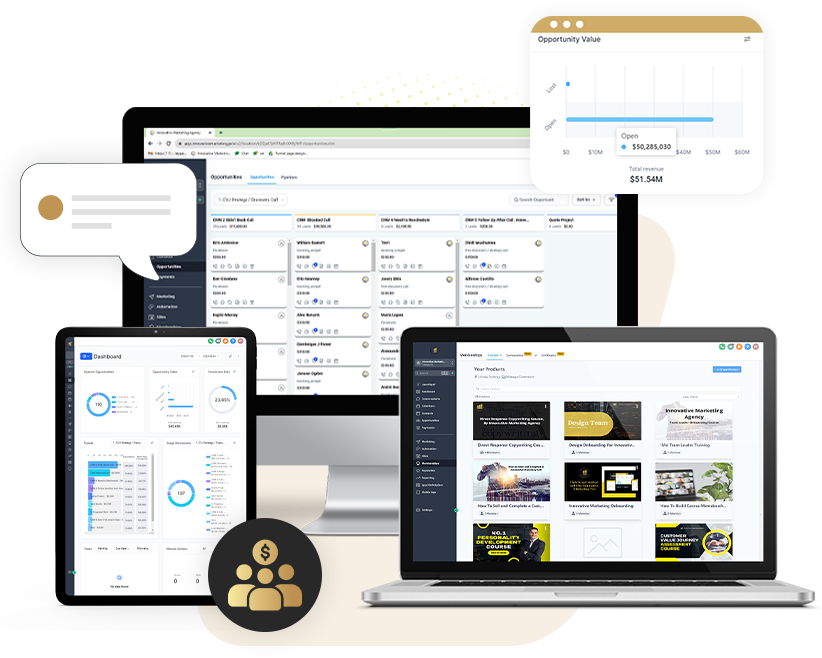
You Pay $0 Today
You Won't be charged until Free Trial Ends
No Commitment, Cancel Anytime
As a reminder we will email you 7 days before Trial Ends
Recent Posts
AI-Powered Lead Generation: Key Strategies for Business Success in 2024
Why Superior Customer Relationship Management Will Determine Winners and Losers
Choosing the Right Email Marketing Software for Your Business
The Ultimate Guide to Social Media Management Tools
Maximizing Conversions: The Best Funnel Builders Reviewed
Building Strong Online Communities: Best Platforms and Practices"
Boost Your Lead Quality: 10 AI-Powered Lead Generation Strategies
Innovative CRM Tools You Need to Know About in 2024
Join The
Innovative Marketing Pro
15 Days FREE Trial!

You Pay $0 Today
You Won't be charged until Free Trial Ends
No Commitment, Cancel Anytime
As a reminder we will email you 7 days before Trial Ends
Recent Posts
AI-Powered Lead Generation: Key Strategies for Business Success in 2024
Why Superior Customer Relationship Management Will Determine Winners and Losers
Choosing the Right Email Marketing Software for Your Business
The Ultimate Guide to Social Media Management Tools
Maximizing Conversions: The Best Funnel Builders Reviewed
Building Strong Online Communities: Best Platforms and Practices"
Boost Your Lead Quality: 10 AI-Powered Lead Generation Strategies
Innovative CRM Tools You Need to Know About in 2024
IM Agency Services
Marketing Research
Paid Advertising
Direct Response Copywriting
Funnels and Automations
Marketing Automation
Business Development
IM Pro Features
Lead Generation Automation
Sales Funnels
Customer Relationship Management
Courses Builder
Affiliate Builder
Invoicing
Team Scheduling
Email Automations
Pipelines and workflow
And Way More....
Address & Phone


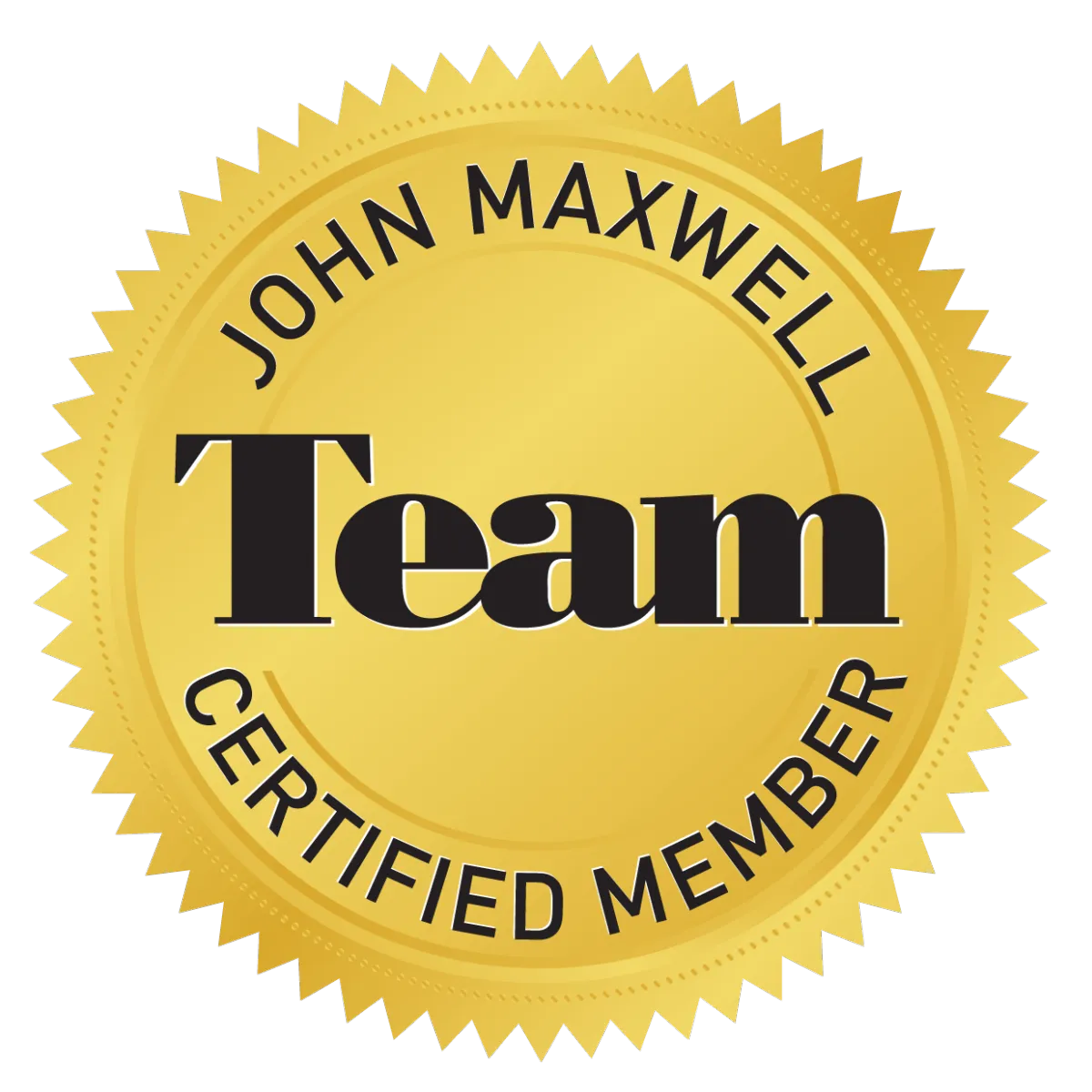

Innovative Marketing Agency
We Design, Build, & Optimize Campaigns
Copyright © 2026 Innovative Marketing Agency LLC

